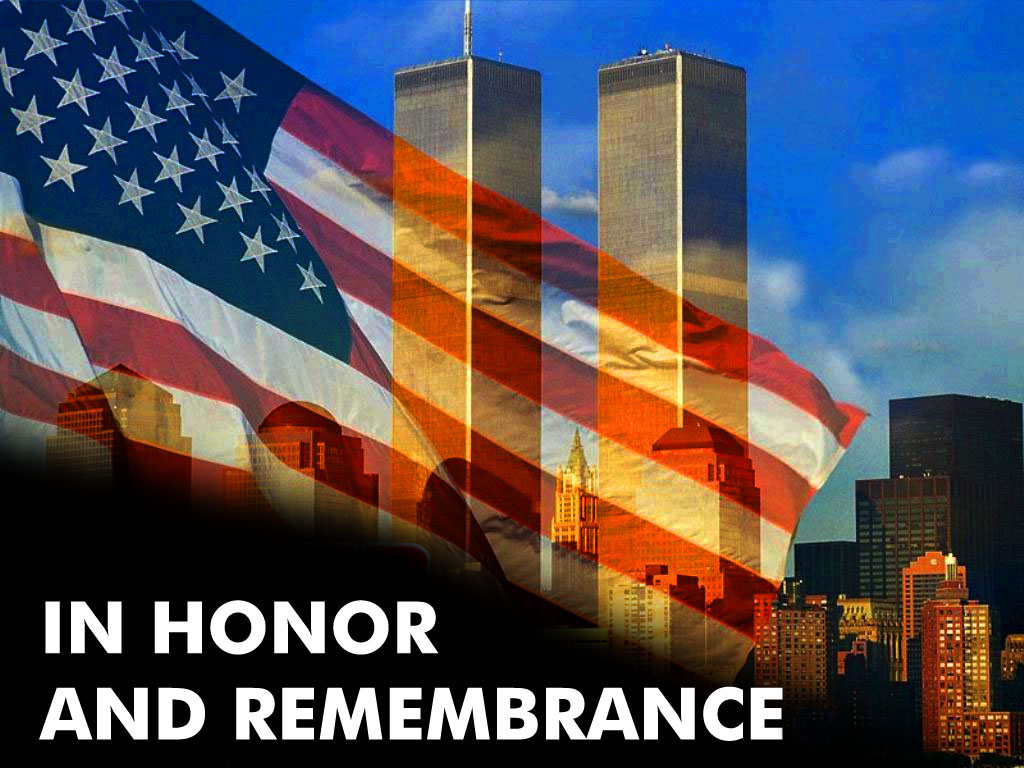
In nine days, we mark twenty years since the tragic events of 9-11-2001.
Much has been altered: federal and state administrations have changed hands more than once, a rebuilt New York City skyline has emerged, Osama Bin Laden has been eliminated, and the trial of Khalid Sheikh Mohammed – named as “the principal architect of the 9/11 attacks” in the 9/11 Commission Report — was scheduled to begin in January, 2021. Nevertheless, our need to remember, our will to remember, should never change.
Or have we forgotten?
Writing last week for the Washington Post, historian Robert Kagan made us contemplate seminal events from a century ago:
“Americans long remembered where they were when they learned about the sinking of the Lusitania in 1915. The shock and horror of that event, in which a German submarine deliberately sank a British ocean liner with nearly 2,000 men, women and children aboard, produced more than moral outrage. It also reshaped Americans’ perception of the world and their role in it, ultimately leading them into the First World War.”
“Ten years later, Americans still remembered the Lusitania, but they did not remember why they went to war…”
“Americans have undergone a similar experience over the two decades since the terrorist attacks on Sept. 11, 2001. The feelings and perceptions of threat that led them to war in Afghanistan have faded, and all that is left are the consequences of that decision, the costs in lives and money, the inevitably mixed and uncertain results, and the unanswerable question: Was it all worth it?”
Given the debacle of the exit from Afghanistan ultimately orchestrated by current President Joe Biden, Kagan’s question is particularly relevant.
Have we also forgotten why we went to Afghanistan twenty years ago?
“For better or for worse, it was fear that drove the United States into Afghanistan — fear of another attack by al-Qaeda, which was then firmly ensconced in the Taliban-controlled country; fear of possible attacks by other groups using chemical, biological or even nuclear weapons; fear of other sleeper cells already hiding in the United States. Experts warned that it was just a matter of time before the next big attack. And these fears persisted.”
It seems to us we have good reason to believe that fears of renewed attacks by emboldened terrorists will return.
Thankfully, we can reiterate what we have previously noted in this paper. America has been spared another disaster, but has been attacked. We have had close calls and “dry runs.” It is unarguable that America must continue to maintain its vigilance and continue to strengthen and adapt our strategy and capabilities over the long term for a changed world.
Nearly two decades after the attacks, there remain serious differences of opinion among serious people on just how to maintain America’s safety. But Patriot Day is not the day on which to focus on our differences.
In indeed, the manner in which we solve our differences in the United States – with ballots, rather than bullets – is again a reminder of that fateful day in September. In 2001, that Tuesday was Primary Day in New York with elections disrupted due to the attacks. For 2019, the electoral calendar was revised by the state legislature; the Primaries were held in June.
We do well to reflect on the words of John Feal, President and Founder of the FealGood Foundation, a group representing 9-11 First Responders and advocating for the responders, their survivors, and their families.
“We don’t need 9-11 to remember 9-11,” he told those gathered for a Ceremony of Remembrance in Hauppauge several years ago. His message was that 9-11-2001 is a day we should remember every day. And forever.
Under intense lobbying from Feal and his colleagues – aided by such celebrities as Jon Stewart – Congress finally did the right thing for the 9-11 Responders.
The James Zadroga, Ray Pfeifer, and Luis Alvarez Permanent Authorization of the September 11th Victim Compensation Fund Act was passed by the House and Senate, and signed into law by President Donald Trump.
“This much-needed legislation provides our brave 9-11 first responders, victims and their families with the support they need and were promised,” noted Rep. Lee Zeldin (R-NY1) at the time. “As I and others have pointed out previously, this wasn’t a hurricane, flood or tornado. This was the largest terrorist attack on U.S. soil in the history of our great country.”
The legislation, previously known as the Zadroga bill, was renamed in honor of just three of our many 9-11 heroes, will ensure victims and their families can receive the support they, and their families, have earned and will need for years to come.
Further, a New York State followed that encouraged school districts to have a brief moment of remembrance on the morning of September 11 hereafter.
Schoolchildren will be encouraged to remember also the first responders, the police, firefighters and the many thousands of volunteers who risked their own well-being to help search for survivors and sort through “the pile” in the aftermath of the collapse of the Twin Towers.
“We owe it to those we lost and to the countless heroes who ran toward danger that day and the days that followed to do everything we can to keep their memory alive,” said Governor Andrew Cuomo in signing the bill – a good act despite his ultimate disgrace.
We agree with Zeldin and Feal. No matter the challenges, the memories of those who died as a result of the attacks on 9-11 — whether as innocent victims or responding heroes — should never be muted, never be forgotten. Take time to reflect. Fly the flag. Attend a memorial service. Never forget.
God Bless our fallen heroes, in or out of uniform. God Bless America.
That is the Message. This is The Messenger